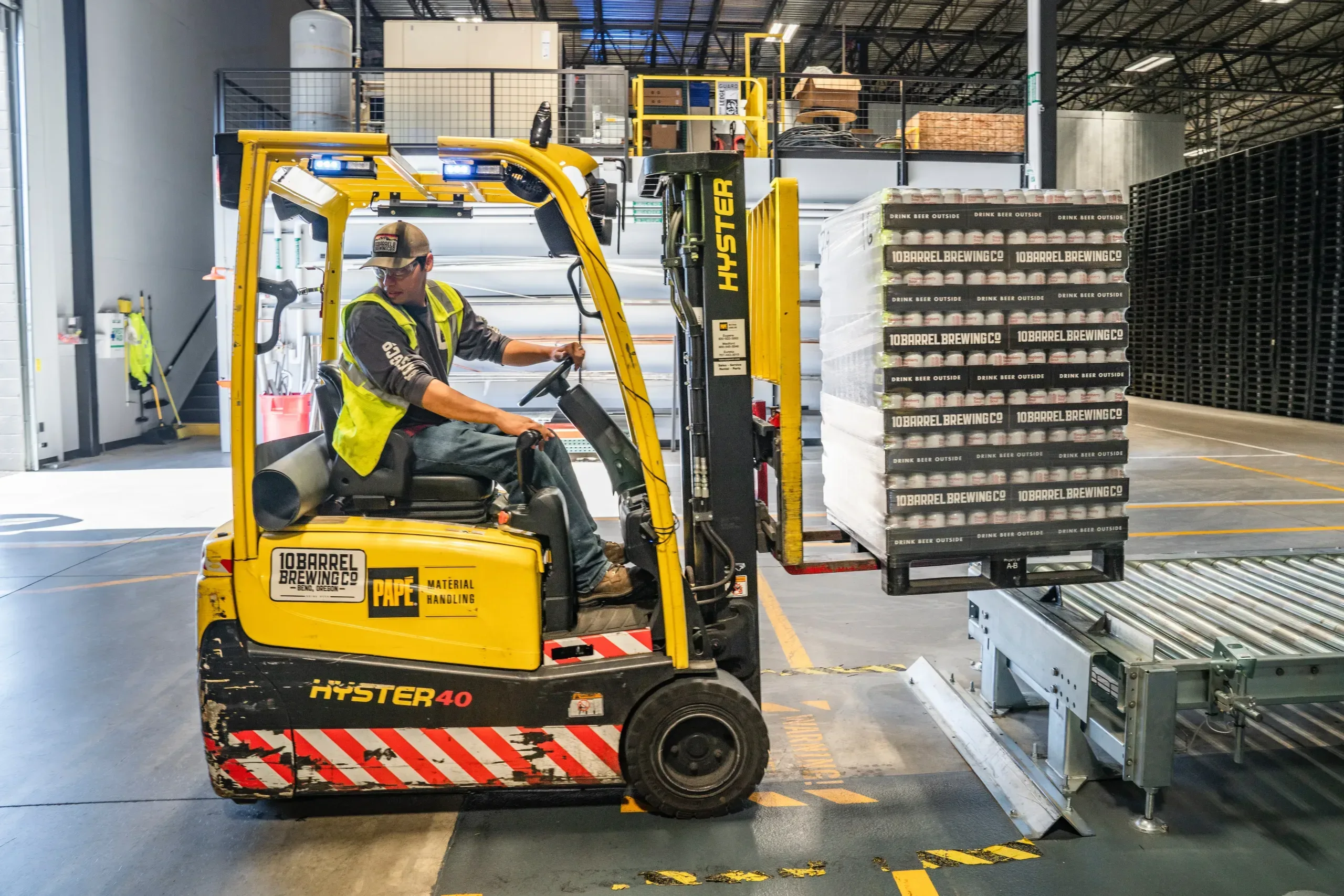The Netherlands is a country full of job opportunities. But let’s skip the talk about landscapes and culture – you’ve probably done your research if you’re serious about moving.
This guide is focused on practical advice for those looking for warehouse, factory, or hospitality work – not highly specialized or degree-based positions. However, even degree holders might consider starting in these jobs while building their budget and searching for career opportunities.
This article is based on personal experience, not professional advice, and isn’t affiliated with any recruitment agency. It’s just my honest take on what to expect when moving to the Netherlands.
Common Questions Answered

Do I need experience to move to the Netherlands?
It depends. Warehouse and factory jobs don’t typically require experience, except for forklift operators. However, with time, companies may train you for these roles, which come with higher wages.
What jobs are available in the Netherlands?
Common options include: Warehouses (Picking, packing, loading trucks, forklift driving), Factories (Assembly line, machine operation), Postal Services (Delivery), Skilled Trades (Plumbing, electrical work), and Hospitality (Various roles). Many roles require no prior experience.
Is accommodation provided?
Recruitment agencies often provide housing for €105–€120 per week, typically shared with one other person. Always ask about living conditions upfront, as quality varies—some accommodations might even be in containers.
What about medical coverage?
Health insurance is mandatory from your first working day. The agency will handle registration, costing €25 – €35 per week.
Will I be taxed in the Netherlands?
Yes, but taxes in the Netherlands are visibly well-spent. Tax rates vary depending on income, but deductions from your weekly pay might range from €30 – €40.
How payments are handled?
Wages are paid weekly, and you don’t need a Dutch bank account. Most workers, including myself, used Revolut. Be aware that advertised wages often list gross (pre-tax) amounts, not net pay.
What’s the difference between Gross and Net Pay?
Gross Pay is before taxes, while Net Pay is what you actually take home.
What’s going on with the working hours?
Working hours vary by job and employer. Make sure to clarify expectations during your application process. Working hours are often a clean 8-hour shift, 5 days a week. If there’s a need for overtime, it’s paid normally with legal bonuses. Some weeks, you might work 4 days, while other weeks, if requested, 6 days.
By sharing my experiences, I hope to give you a clearer idea of what it’s like to move to the Netherlands on a tight budget. Good luck!
Let’s get to the topic we’re all curious about.
Which agencies offer this package?
First of all, you don’t need to pay anything. These agencies already have agreements with employers and make a very satisfactory profit for every worker they place. They’re certainly not doing you a favor.
*Anyone who asks you for money to find work in the Netherlands is a scammer. Don’t send money to anyone.
The employment agencies that provide accommodation are:
- Tempo-Team: I’ve heard very good reviews about this agency. You might need to do some searching to find jobs that include accommodation, but there are plenty of opportunities.
- Otto Work Force: I’ve personally worked with this agency. I didn’t face any issues.
- Hobij
- Robinjobs
About the Tax Number (BSN)
To work, you first need to get a tax number (BSN), which the agency will help you with. It’s a very small and quick process, especially if you request a temporary BSN. This lasts for a few months, but I know many people who use it for years.
The agency will explain the process to you. Generally, with a Greek ID, you can get a BSN. However, if you plan to stay for a long time, having a passport will be much more convenient.
About the money you’ll be making and the adaptiveness
In some jobs, the hourly wage is satisfactory, but generally speaking, don’t expect a massive salary that will allow you to save a lot and return to Greece with a new car model.
Jobs through agencies are usually low-paying and, in my opinion, are just a starting point if you don’t have relatives or friends there to help you get on your feet. The main thing is that you won’t go hungry, and you’ll have guaranteed shelter.
I always try to be very honest with my readers in my articles, which is why I mention both the positives and negatives. It’s not all paradise, and every beginning is hard.
This kind of work fed me, and I adapted to the conditions that exist. Someone else might not want to share accommodation with a stranger or settle for minimum wage. Everyone has their own standards, but everyone adjusts differently.
My Personal Earnings and Expenses

At the end, I’ll share with you my personal income and expenses while I was working in the Netherlands, so you can get a clearer picture of what it’s really like. Let me show you my wealth so you can envy it! 😊
Agreement: €12/hour – 5 days a week
Job: Picking in a warehouse
Let’s do a simple and quick calculation to see what actually stays in your pocket.
- €12 x 8 hours = €96/day x 5 days = €480/week
- €480 – €105 rent = €375
- €375 – €25 health insurance = €350
- €350 – €30-40 taxes (let’s say €35) = €315
So, net profit per month after expenses: €1,260 (assuming you consistently work 5 days a week). There were also weeks when I worked 4 days or 6 hours a day, so this figure is indicative and variable. Food is not provided, so you choose how extravagant you want to be.
These were roughly the net earnings I made based on my agreement. For the Netherlands, this is very little money, but at least you secure the essentials in case of need. There are also many opportunities for advancement if you stay with the same company.
In a year, you could become a Team Leader or the company might train you as a forklift operator, increasing your hourly wage to €13-14 net. At the warehouse where I worked, our supervisor started to like us and became a manager within two years. So, we’re talking about a significant income increase.
Another thought is that you can gain work experience and then look for higher-paying positions in other companies. You’ll learn how the system works and, based on your choices, decide how far you want to go.
Food and Entertainment Costs

Personally, I didn’t notice major differences in supermarket prices compared to Greece. Some products were more expensive, while others were cheaper. It also depends on which store you choose. My first choice was Lidl, followed by other stores.
For a casual drink at a bar, beer, and alcohol prices are similar to Greece. Just forget about delivery and eating out. Maybe a kebab, my friend, which is at a more reasonable price. Let’s not ruin your dream.
That’s it for this article. I hope I’ve answered some of your questions and helped clarify the picture regarding this way of migration.






